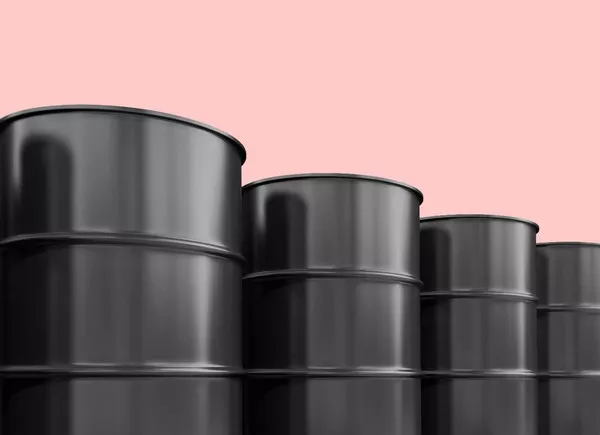In the ever-evolving world of investment, finding opportunities that align with market trends and global events is crucial. One such asset class that has consistently attracted attention is crude oil. As a vital component of the global economy, crude oil serves as the lifeblood of various industries. For investors seeking exposure to this dynamic commodity, the question often arises: Is there an Exchange-Traded Fund (ETF) for crude oil?
Understanding Crude Oil ETFs
Crude oil ETFs offer investors a convenient and accessible way to gain exposure to the fluctuations in the price of crude oil without directly investing in physical commodities. These financial instruments track the performance of crude oil benchmarks, providing investors with an opportunity to diversify their portfolios and capitalize on the volatility inherent in the energy market.
The Mechanics of Crude Oil ETFs
Crude oil ETFs typically invest in futures contracts, allowing investors to speculate on the future price movements of the commodity. These funds can be structured in different ways, including those that track the spot price of crude oil or focus on specific segments of the energy sector. By employing futures contracts, investors can navigate the nuances of the crude oil market while avoiding the challenges associated with physical commodity ownership.
Risk and Reward in Crude Oil ETFs
Investing in crude oil ETFs comes with its own set of risks and rewards. The volatility of crude oil prices is well-known, influenced by geopolitical events, supply and demand dynamics, and macroeconomic factors. Consequently, the value of crude oil ETFs can experience significant fluctuations, providing both opportunities and challenges for investors.
For investors seeking exposure to crude oil, it is crucial to conduct thorough research and consider the risk tolerance of their investment portfolios. While the potential for attractive returns exists, the inherent volatility of crude oil markets demands a strategic and well-informed approach.
See Also: How to get the future value?
Crude Oil ETFs vs. Direct Investment
Comparing crude oil ETFs to direct investment in the commodity highlights the advantages and disadvantages of each approach. Direct investment in crude oil involves purchasing physical barrels or exploring oil-related equities, while ETFs provide a more liquid and cost-effective means of exposure. Understanding the nuances between these options is essential for investors looking to align their investment strategy with their financial goals.
The Regulatory Landscape
Investors in crude oil ETFs must also navigate the regulatory landscape that governs these financial instruments. Regulatory bodies such as the Securities and Exchange Commission (SEC) play a crucial role in overseeing the operations of ETFs, ensuring transparency, and protecting investors. An understanding of the regulatory environment is imperative for investors seeking to make informed decisions regarding their exposure to crude oil through ETFs.
Popular Crude Oil ETFs
Several ETFs cater to investors seeking exposure to crude oil, each with its unique strategy and focus. Among the most well-known is the United States Oil Fund (USO), which tracks the daily price movements of West Texas Intermediate (WTI) crude oil. Other ETFs may focus on Brent crude or offer exposure to a broader basket of energy-related assets. Investors should carefully evaluate the objectives and methodologies of these funds to align them with their investment goals.
Factors Influencing Crude Oil Prices
To make informed decisions about crude oil ETFs, investors must be aware of the factors influencing crude oil prices. Geopolitical tensions, OPEC decisions, global economic conditions, and technological advancements all play a role in shaping the future of crude oil markets. Analyzing these factors can provide investors with valuable insights into potential price movements, aiding in the development of a well-rounded investment strategy.
Diversification within the Energy Sector
While crude oil ETFs offer a pathway to gain exposure to the broader energy sector, investors should also consider diversification within this space. Energy ETFs may focus on renewable energy sources, natural gas, or specific sub-sectors within the broader energy industry. Diversifying within the energy sector can help mitigate risks associated with the inherent volatility of crude oil prices.
Market Trends and Outlook
As investors contemplate the inclusion of crude oil ETFs in their portfolios, understanding current market trends and the outlook for the energy sector is paramount. Technological advancements, global efforts toward sustainable energy, and geopolitical developments can all impact the future trajectory of crude oil prices. Staying informed about these trends enables investors to adapt their strategies and position themselves advantageously in a dynamic market environment.
Conclusion
In the realm of investments, crude oil ETFs offer a gateway for investors to participate in the dynamic energy markets without the complexities associated with direct commodity ownership. Understanding the mechanics, risks, and regulatory landscape of crude oil ETFs is essential for making informed decisions that align with one’s investment objectives.
Whether investors seek short-term opportunities or long-term exposure to the energy sector, the world of crude oil ETFs provides a diverse array of options. As the global economy continues to evolve, so too will the landscape of energy investments. By staying informed, conducting thorough research, and carefully considering their risk tolerance, investors can navigate the intricate web of crude oil ETFs and potentially benefit from the opportunities presented by this essential commodity.

